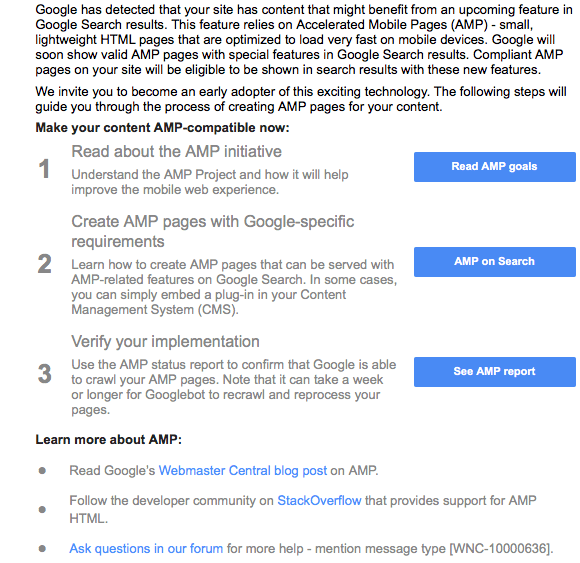Should You AMP Your SEO?
So you may have heard of AMP being talked about in the context of SEO and mobile recently. AMP or Accelerated Mobile Pages, is a new open source initiative from Google to speed up the mobile web. There are not a lot of examples that I could find from Australian publishers but certainly in the US there are plenty. If you are in Australia and want to see it in action you can point your mobile browser at g.co/ampdemo or point chrome desktop browser and use the developer tools to toggle your device mode to mobile. It really is blistering fast and seems almost instantaneous. The text and css elements appear first with images rendering moments later. As you will see from the screen cap below done in realtime it’s damn fast. This video is captured directly from the iPhone 6s Plus.
I’ve already mentioned AMP a few times this year but now we are hearing the shrill cries from the relentless 24×7 publishing mill whining that SEOs are negligent for not rolling it out to everyone. What a lot of these purveyors of FUD don’t understand is that this wonderful technology is simply not for everyone. Not only that but why is it the responsibility of an SEO to get it rolled out? It has no SEO benefits (yet), surely the Conversion Rate Optimisers or the UX folk should be all over it as well.
Two Simple Signs To Decide If AMP Is For you?
1. You have a message in Google Search Console from Google that says AMP is for you. It would look like this.

So obviously it’s important you have your site verified in Google Search Console so you get these messages.
2. You publish a lot. The client sites that we have seen receive these messages so far have been large, old, established publishing sites. Sites with a lot of content. So bloggers, big data type sites or large informational directories and of course news sites. If you are already being published in Google news you should definitely be using AMP.
Who shouldn’t worry about AMP right now?
I would say most B2B sites. Obviously there will be exceptions if they fall into the any the categories mentioned above but for the most part B2B sites are not going to have the volume of content or users to benefit from AMP. I have not seen ecommerce sites using AMP at the moment as it would be very difficult to implement and the benefits marginal as this article from Bruceclay.com explains.
If it is speed you want to improve there are plenty of other things to check before worrying about implementing AMP.

Jim’s been here for a while, you know who he is.


